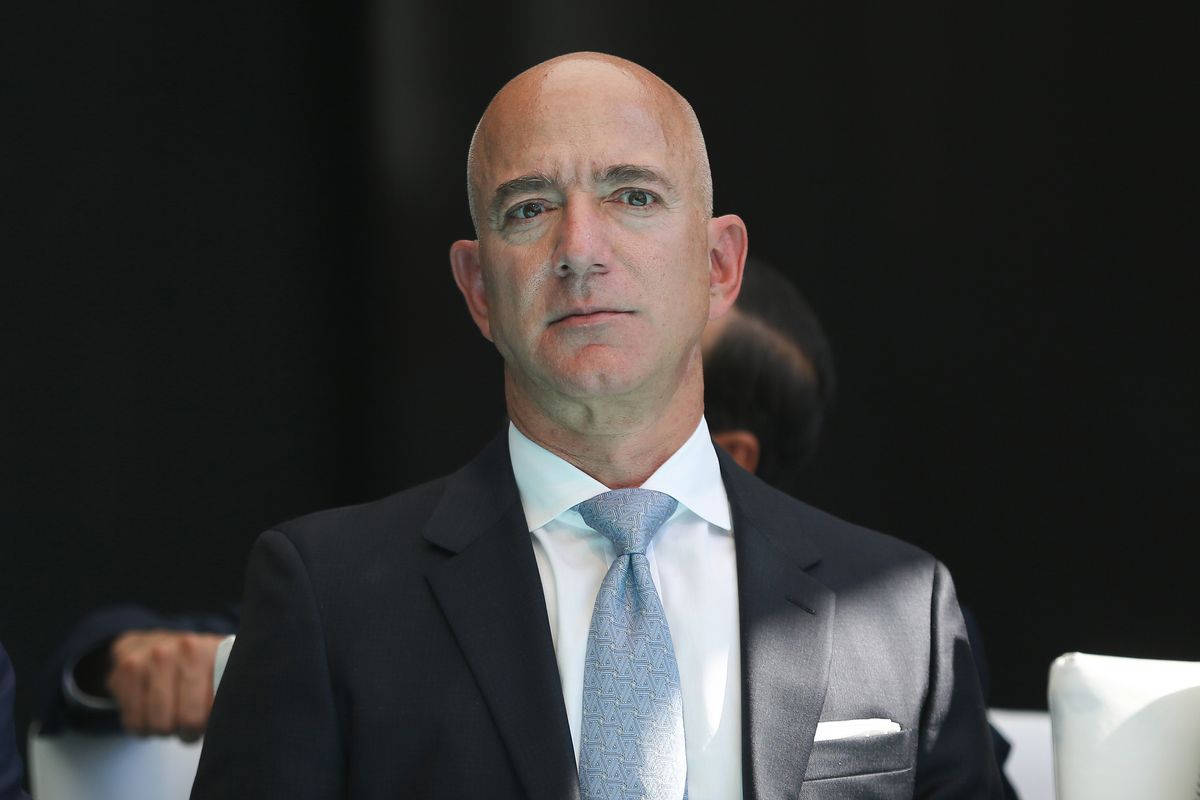Bezos’ Phone Hacked by Saudi Arabia’s Crown Prince, Report Claims

A few minutes every morning is all you need.
Stay up to date on the world's Headlines and Human Stories. It's fun, it's factual, it's fluff-free.
On Wednesday, January 22, it was reported that the phone of Jeff Bezos — the CEO of Amazon, owner of the Washington Post, and the world’s richest man — had been hacked by Mohammed bin Salman, the crown prince of Saudi Arabia.
The United Nations has called for an investigation into the matter.
The hack occurred before Saudi Arabia’s assassination of Jamal Khashoggi, a former reporter for the Washington Post who had written critically of the crown prince.
Saudi Arabia, for its part, has denied playing any role in the hack.
How was Bezos’ phone hacked?
As originally reported by The Guardian, Bezos and Mohammed bin Salman (also known as MBS) had been communicating on their phones via the texting app, WhatsApp. The two originally met in March 2018 to discuss possible business and investment opportunities between the Kingdom and Amazon, the world’s largest internet company.
It has been deemed “highly probable” that a malicious video file sent by MBS to Bezos on May 1, 2018 was the culprit in the hack.
The malicious file extracted “large amounts of data,” a source told the Guardian, though exactly what was stolen still remains uncertain.
In a tweet on January 22, the Saudi Embassy in the US called the accusations “absurd” and called for an investigation of the claims. The UN’s own inspection of the evidence has led them to also call for a thorough investigation.
The leaking of Bezos’ personal messages
The hack was uncovered as a result of a digital forensic analysis which was initiated after personal correspondence between Bezos and a girlfriend were obtained by the National Enquirer, a popular tabloid owned by David Pecker that operates under the umbrella of American Media Inc. (also known as AMI).
The story began on January 9, 2019, when Bezos announced via Twitter that he and his then-wife, MacKenzie Bezos, were divorcing.
Later that day, the National Enquirer claimed they had been investigating Bezos and were prepared to publish text messages and photos between Bezos and an unidentified woman. The woman was later identified as Lauren Sanchez, a former news anchor.
On February 7, 2019, Bezos published a post on Medium entitled “No thank you, Mr. Pecker” in which he accused the National Enquirer owner of “extortion and blackmail.”
In the post, Bezos included an email from AMI Vice President Dylan Howard. Howard claimed that the Enquirer was in possession of sexually explicit photos that it intended to publish unless Bezos stopped a Washington Post investigation into Pecker and AMI.
Bezos included other correspondence from AMI personnel, all aimed at getting Bezos to claim publicly that he had “no knowledge or basis for suggesting that AMI’s coverage was politically motivated or influenced by political forces.”
Pecker, who is friends with US President Donald Trump, has been accused of using his publishing empire to support Trump’s campaign. That included burying a salacious story which claimed Trump had an affair with a Playboy model.
[article_ad]
The Saudi connection to the National Enquirer
Bezos also claimed in his Medium post that the “Saudi angle” in the Washington Post’s investigation of AMI was “particularly sensitive” for Pecker.
The connection between Saudi Arabia and Pecker has gradually come into focus over the last couple years.
In March 2018, the New York Times reported that Pecker used his friendship with Trump to arrange a meeting with highly connected Saudis. AMI then published a 97-page magazine in the US dedicated to honoring MBS just as the crown prince was arriving in America.
MBS’s efforts to build bridges in the west
A day after Bezos published his post, the Wall Street Journal reported that MBS had been seeking to build connections with US media outlets, including Vice, to help “remake [Saudi Arabia’s] image in the West.”
MBS has been seeking to establish a reputation as a reformer in his nation. However, despite lifting a ban on female drivers in the country, MBS has been called a “fake reformer” and a tyrant.
As early as February 2019, Arab Tyrant Manual, an organization dedicated to resisting authoritarianism, was reporting that Saudi Arabia may have played a part in hacking Bezos’ private information and passing it on to the National Enquirer.
Saudi Arabia also appears to be firming up its relationship with President Trump. In January 2020, it was revealed that the crown prince’s brother, the Saudi Arabian deputy minister of defense Prince Khalid bin Salman, was invited for a meeting at the White House. News of the meeting was only revealed after it had already taken place.
The assassination of Jamal Khashoggi
On October 2, 2018, Jamal Khashoggi, a Saudi citizen and US resident who worked as a columnist for the Washington Post, was assassinated inside the Saudi consulate in Istanbul. Khashoggi had been an outspoken critic of MBS.
Evidence soon appeared that suggested Khashoggi had been killed by a group of men with ties to the Saudi government. The Saudis denied any responsibility for killing the journalist and announced in December 2019 that five men had been sentenced to death for Khashoggi’s murder.
In the wake of Khashoggi’s murder, the Washington Post has been openly critical of MBS and the Saudi Kingdom.
A month after the killing, Trump released a statement in which he said the facts around Khashoggi’s death may never be known. Regardless, he stated that he intended to remain “a steadfast partner of Saudi Arabia.”




Comments ()